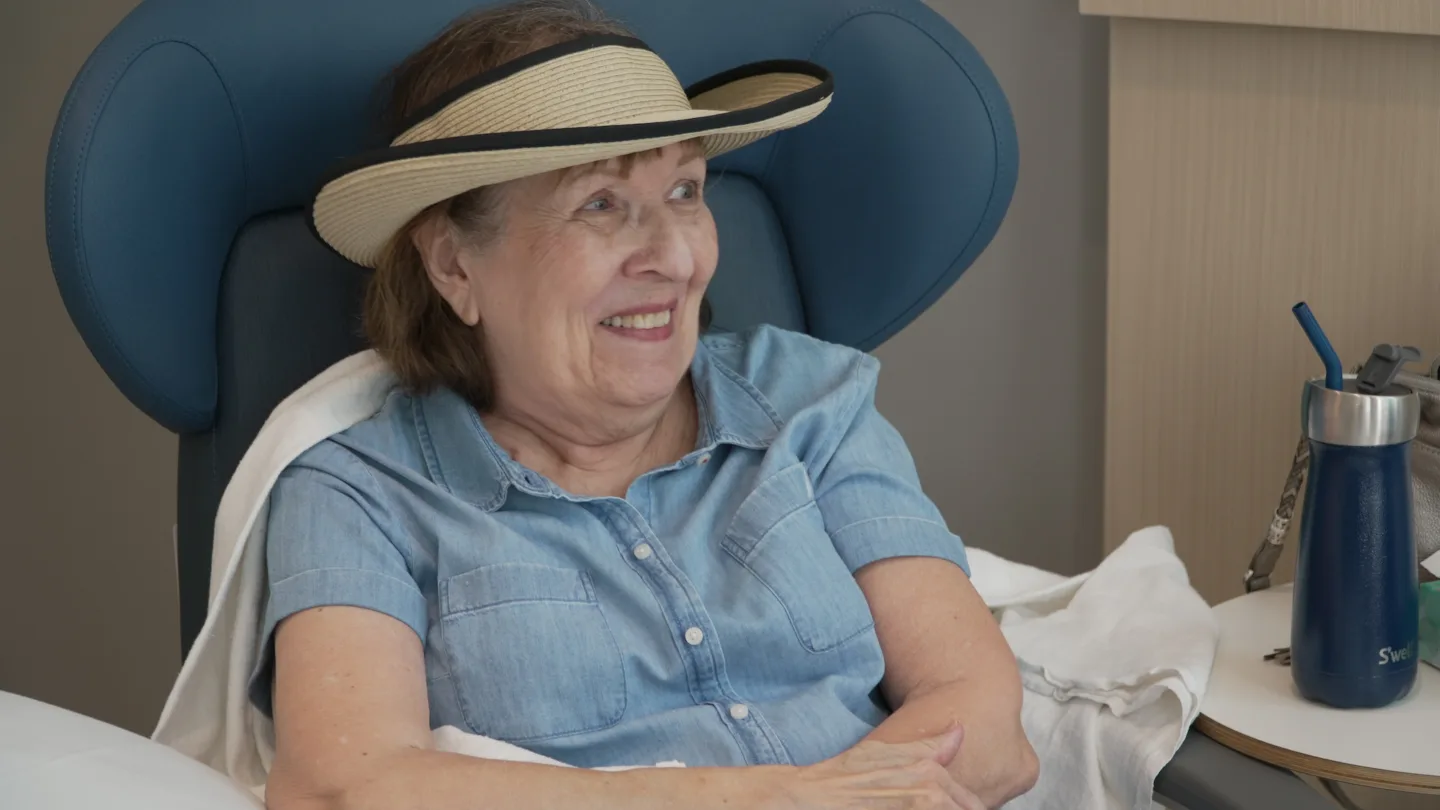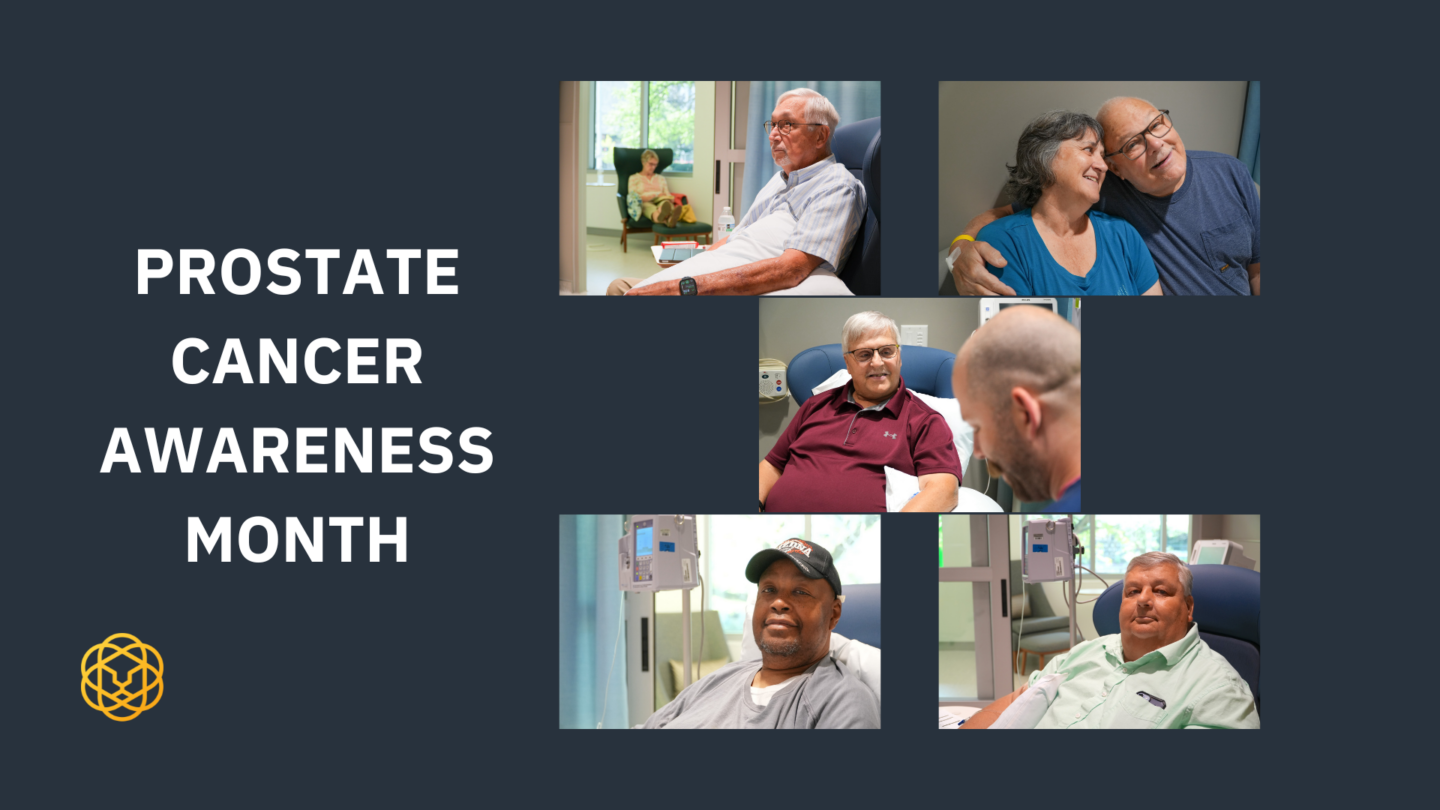
A whopping 3.3 million American men are living with prostate cancer. And approximately one in eight men will be diagnosed during their lifetime.
However, prostate cancer doesn’t have to be a death sentence. In most cases, if it’s caught early, the cancer is very treatable. Annual PSA screening and speaking up when something feels wrong are the keys to early detection.
But don’t take it from us, take it from these five men. Each one is battling metastatic prostate cancer and receiving radiopharmaceutical therapy at BAMF Health.
These courageous men hope that by sharing their experiences and advice, others will learn something new and take action when it comes to their health.
Mark A.
Mark, a retired GM engineer, knew the impact of prostate cancer long before his own diagnosis. His father died of prostate cancer back in 1994, and it’s then Mark vowed he would do everything he could to avoid getting it.
For years he got his annual PSA test, but he put it off in 2018 and again in 2019. In 2020, he started having trouble urinating and had pain. Mark was referred to a urologist who ultimately confirmed his fear, he had prostate cancer.
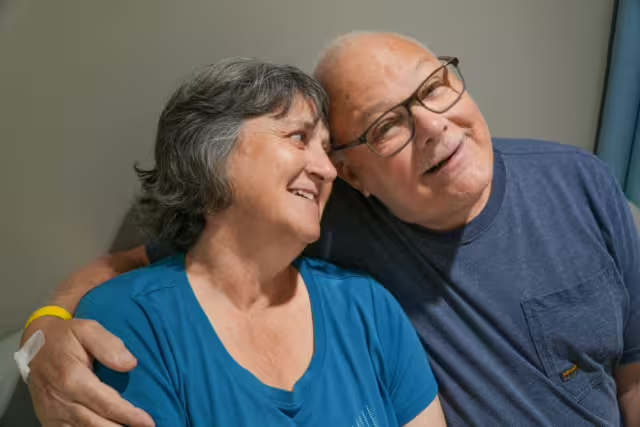
Mark didn’t want to go through the rigor of chemotherapy, so his sister-in-law sent him a news story about BAMF Health opening its doors in Grand Rapids. In the end, Mark ended up being BAMF Health’s very first clinical trials patient, and he’s now participating in a second clinical trial.
“I really appreciate what BAMF has done,” he said. “I’m excited to go there. When I had to stop going because my first trial was over, I missed the people there. The staff is incredible. They just make you feel good.”
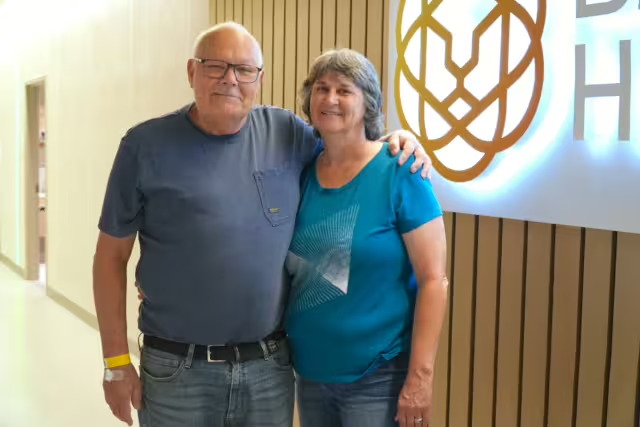
Mark was asked to share his health journey on a virtual call with GE HealthCare’s U.S. and Canada teams. His experience reinforced how GE HealthCare’s technology can bring hope and clarity to patients. BAMF Health CEO Anthony Chang was also on the call and later thanked Mark for bravely sharing his experience.
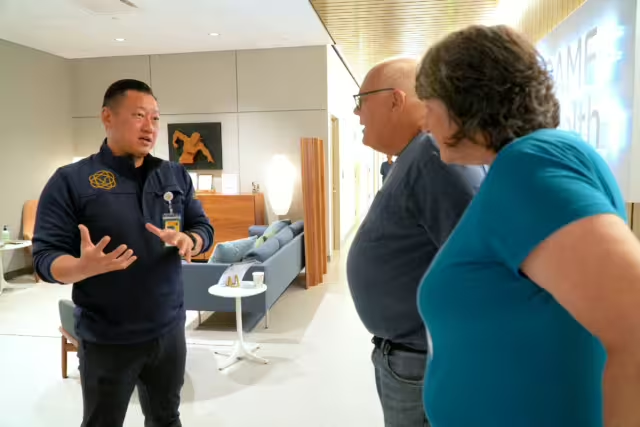
As much as Mark appreciates the treatment he receives at BAMF, he believes his situation could have been different if he hadn’t skipped those two PSA tests. His advice to other men, especially those with a family history of prostate cancer, is to never neglect your annual PSA test.
Bryan H.
This year, Bryan had the honor of walking his oldest daughter down the aisle. It’s a moment he’ll never forget because for a while he didn’t think he’d be able to. There were times throughout Bryan’s 10-year battle with prostate cancer when severe pain prevented him from walking at all.

It started in 2014 when Bryan was diagnosed with an aggressive form of prostate cancer. After surgery and eventually a clinical trial, he thought he was in the clear. So, he skipped several annual PSA tests.
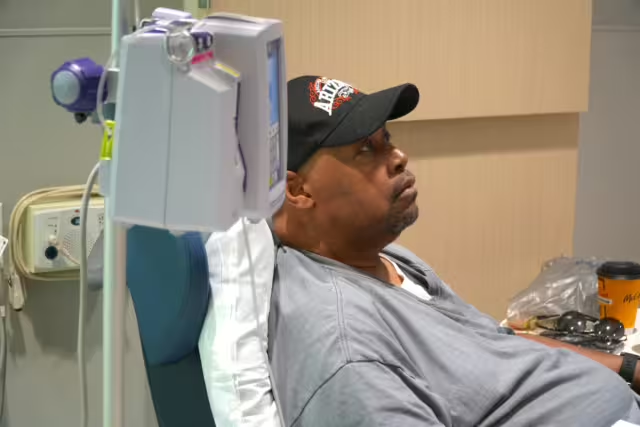
“It’s the dumbest thing I’ve ever done,” Bryan admits. “My cancer came back with a vengeance and hit me like a ton of bricks. I tried chemo and other medications but they didn’t work. I started to feel defeated, like the cancer was going to consume me. That’s when my doctor told me about BAMF.”
Bryan says he knew something was different about this treatment from the very beginning. “After my first treatment, my PSA dropped 71%. That’s never happened in the history of me knowing was PSA was. That’s a big drop!”
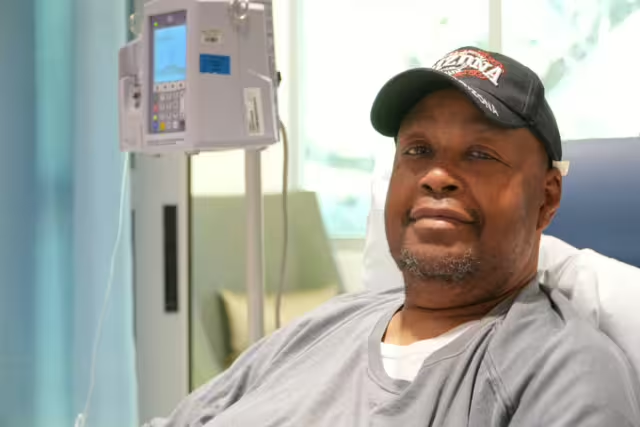
Every day Bryan feels a little bit stronger and a little bit better. He’s back to lifting things himself and walking with his son. He’s also thinking about getting back into golf. His advice to others: “If you feel any change in how you urinate, go to a urologist. You have to get it looked at before it’s too late. Don’t wait because every second you do increases the chance of cancer spreading throughout your body.”
Mark M.
Mark and his wife Sue have been married 46 years. But the last six years have been a physical and emotional rollercoaster. In August of 2018, Mark was diagnosed with prostate cancer. His PSA had been going up in the years prior, but he waited to see a urologist.
He had his prostate removed in 2019, but in 2020 he discovered the cancer had spread. Over the next few years, he was treated for multiple tumors with several rounds of chemo and radiation.
“In the summer of 2023, my PSA started going up again, but the PET scan couldn’t find anything,” said Mark. That’s when Mark’s doctor recommended BAMF Health.
“I had another PET scan at BAMF and two tumors were found that the other PET scan didn’t catch,” he said. “The PET scan [at BAMF] was only five minutes, versus the normal one that was 28 minutes.”
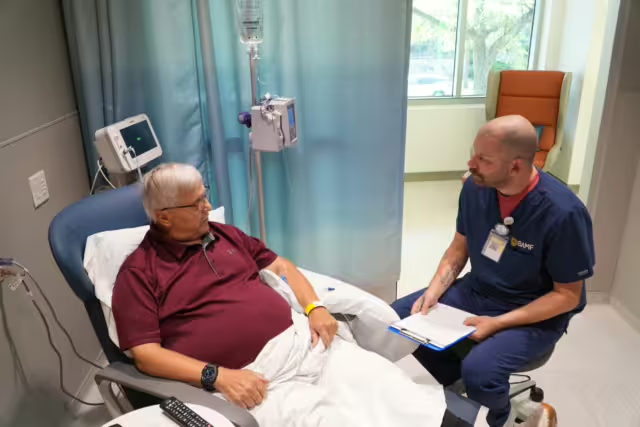
Mark appreciates that the team at BAMF Health works in collaboration with his other doctors to manage his care. “We are so happy that doctors are able to share information back and forth. It’s seamless. There’s no competition, they all just want the best.”
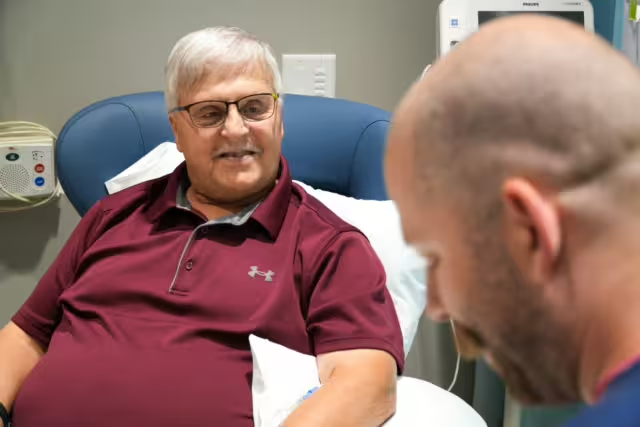
He encourages men who have a large spike in their PSA to take action and immediately consult with a urologist. “In the year that I waited after my PSA went up, my cancer spread. I could have had a better outcome if I didn’t wait.”
Fred G.
Prostate cancer runs in Fred’s family. His dad died of prostate cancer and others in his family have battled it too. Because of that, Fred has been consistent with his PSA screening. He knew 20 years ago that his PSA was slowly creeping up, but it would take about a decade to take action.
In 2015, Fred remembers getting a call from his doctor, while on vacation, saying his PSA jumped from 13 to 33. Further tests would reveal he not only had cancer, but it had spread to his lymph nodes. He underwent surgery and his PSA went back down.
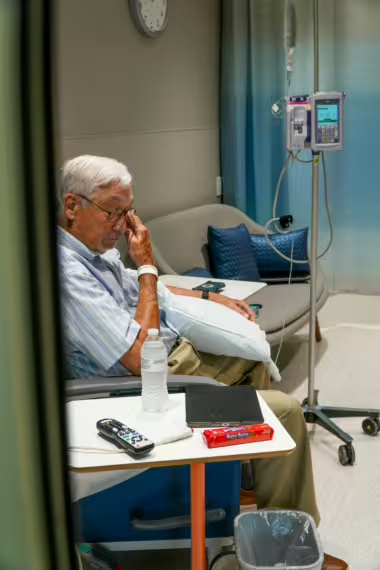
In 2020, Fred’s PSA jumped again. This time he went through eight rounds of chemo and 45 radiation treatments. Again, his PSA dropped, but only for a couple of years. In 2023, Fred began treatment at BAMF Health.
“The people here are so friendly and BAMF is easy to get to,” he shared. “They make you feel at home and make you feel like you’re important.”
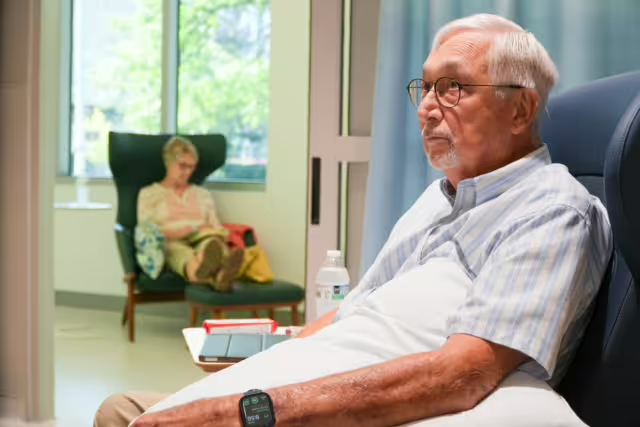
Fred went through three cycles of treatment and his PSA dropped down to zero. Currently, most insurance companies cover six cycles of therapy. Because Fred only needed three to knock his PSA down, he decided to save the other three. So, when his PSA started creeping back up 16 months later, he was grateful he still had treatments left to use.
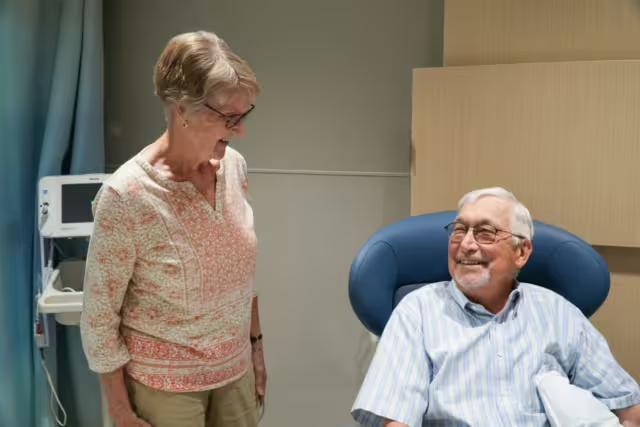
Fred wants to encourage other men to make sure they not only get their annual PSA test but do something if it spikes. “If I had to do it all over again, I wouldn’t have waited as my PSA continued to go up. If it starts creeping up, don’t wait. Get it taken care of. So much more can be done now to treat it more effectively. The treatment is there, don’t wait.”
Joe W.
With 12 grandkids, Joe has much to be thankful for. He’s also grateful he and his wife can celebrate 45 years of marriage. But the last 14 years have tested them in ways they could never have imagined.
A routine screening in 2010 revealed Joe’s PSA was at 180. He went through surgery, chemo, and radiation which stabilized his PSA for three years. When it rose again in 2013, medication knocked it back down. When it rose again in 2017, localized radiation worked. But two years later, Joe was out of options. He heard about a clinic in Germany using radiopharmaceuticals to treat prostate cancer and thought it was worth a shot.
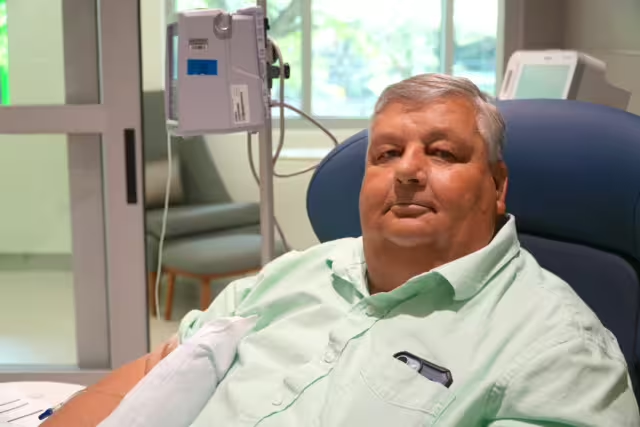
“It was the only option I had left, so it was an easy decision to go,” he said. “I had no reservations, and my doctor said the results would be great.”
There, Joe met Dr. Harshad Kulkarni, BAMF Health’s Chief Medical Advisor. At the time Dr. Kulkarni was the lead attending physician in charge at the German Theranostics center overseeing thousands of radiopharmaceutical treatments for patients around the world.
The therapy worked and Joe returned home. A year later, when his PSA started rising, Dr. Kulkarni was the first person Joe reached out to. Dr. Kulkarni told Joe it just so happened a Theranostics clinic was about to open mere hours away from Joe’s home in Ohio.
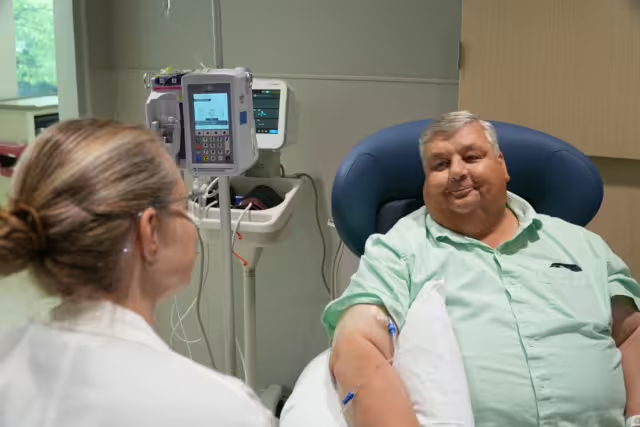
Joe became one of BAMF Health’s first patients. “Dr. Mancini helped get my health insurance to approve treatment. I don’t think a lot of doctors get involved in that stuff, but he did. I had a lot of cancer the first time I came here. I had over 20 spots. It was eliminated after the third treatment. Every round is life-extending and that’s what you look for.”
Joe says men who are diagnosed must seek treatment quickly and explore all options. “Search out different protocols before you make a decision. There are many different ways to treat prostate cancer. Don’t be afraid to break away from traditional protocols. I talk to people all the time and tell them, ‘You gotta go to BAMF’.”


